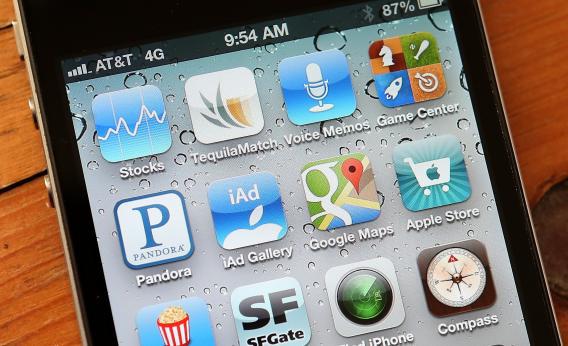This morning, I logged onto Twitter’s new micro-video sharing site, Vine, searched for videos filed under the hashtag #boners, and found just what I expected: Explicit footage of a man masturbating on a six-second loop.
Yes, Vine, like any other relevant technology in human history, has been leveraged to create and distribute pornography. True to form, those in power have moved to censor the stuff. Last night, Twitter tweaked the days-old service to prevent users from seeking out content that could be pornographic. I tried searching for #NSFW, #porn, #nude, #boobs, and #penis, and came up empty. (For now, at least, #boners has been spared.) Actually removing pornographic videos from the site falls to the discretion of Vine’s community; any user can report content they “believe” to be “sensitive or inappropriate,” including “nudity, violence, or medical procedures.” Flagged videos are slapped with a warning label that the video “may contain sensitive content.” At least one account has been suspended after uploading more than 30 explicit videos since Friday’s launch.
In other words, you’re free to upload a six-second photograph of your penis to Vine. You just can’t call it that. And how long your video survives on the site will depend on who stumbles upon the material. Hundreds of boner fans could “like” your contribution, but if one sensitive soul stumbles upon it while searching for videos of artisanal hot dogs, you’re banned.
Vine is the latest application to attempt to navigate the sexual standards of Apple, which distributes the app to the iPhone. Steve Jobs believed that he had a “moral responsibility” to keep porn off the iPhone and instructed porn enthusiasts to “buy an Android” instead. But actual enforcement has proven tricky. Apple began seriously cracking down on “overtly sexual content” in 2010, pulling apps like Wobble iBoob, which allowed users to isolate the breasts of women in photographs, and then jiggle them with the shake of a phone (the technological triumph is still available on the Android).
Apple has since turned its attention to general applications that could incidentally be hosting sexual stuff. Earlier this month, it banned the photo-sharing app 500px, which allowed nude photographs, but filtered them through a default safe search. Apple said it sidelined the app for “featuring pornographic images and material,” plus the vague claim that it had received “customer complaints about possible child pornography.” Meanwhile, Apple continues to support Internet giants like Safari, Tumblr, and Twitter itself, all of which serve as unofficial conduits to explicit material. If Apple sidelined every application that could be used to share porn, the iPhone would be little more than a hunk of minerals. Even landlines are not safe from smut.
With Vine, Apple is again facing scrutiny for its idiosyncratic standards for banning sexual content. But its approach is actually indicative of our disordered relationship to sex on the Internet in general. Watching porn is normal, but buying it is weird. Self-shot sex tapes and nude photos are a source of private fun, but public shame. Porn on the iPhone is OK, as long as you don’t identify it as such. 500px is banned for creating a mechanism to help us identify (and avoid) nude photos on its site. And Vine takes action against pornographic content by preventing us from calling it #porn.
Those tactics might make Apple and Vine seem like responsible actors in a porn-crazed world, but they don’t do much to actually help users. With obvious tags like #porn and #NSFW banned from Vine, those looking to share porn are instead gravitating toward less explicit tags, which means that anyone looking for a video of high school-aged boys ironically miming penises into their mouths as a joke will also come across a real, erect penis. And vice versa. If we could just be honest about this, users might actually be able to find porn when they want it, and studiously avoid it when they don’t. For now, the next time a penis pops up in your feed, it will be an unexpected surprise.
